By Corrie Pikul
We asked top nutritionists to reveal the miscalculations and misinformation that sabotage our efforts to lose weight.
1. They OD On The EVOO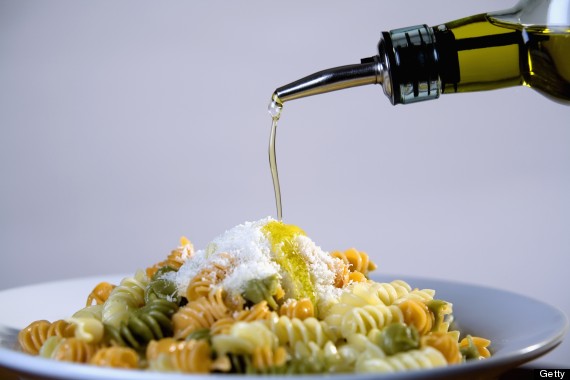
The rationale: "Olive oil is so good for me -- I can never have too much of it."
The mistake: Actually, you can, say registered dieticians Tammy Lakatos Shames and Lyssie Lakatos, aka the Nutrition Twins. They find that many of their health-conscious clients think the health benefits of this Mediterranean oil (e.g., heart-healthy monounsaturated fats, flavonoid antioxidants and vitamin E ) cancel out its calories. But it's still an oil -- one that packs 120 calories and 14 grams of fat per tablespoon. "People will put 300 calories in the pan before they even start cooking," the Nutrition Twins tell us.
Try this: Measure out the oil you use for cooking as well as for dressings or sauces. The Nutrition Twins also suggest putting olive oil in a spray bottle so that a little will go a longer way.
2. They Avoid Fruit Like It's Candy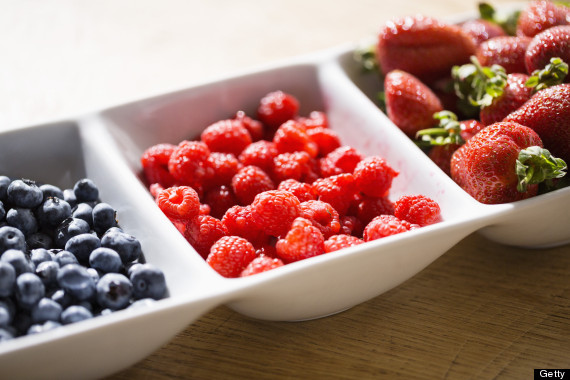
The rationale: "Fruit is loaded with sugar that will cause me to pack on the pounds."
The mistake: While "nature's sweets," especially the variety that grows on trees, do have a high percentage of naturally occurring sugar, fresh fruit comes with benefits like essential vitamins, minerals and fiber, which can help you feel fuller longer, says Rebecca Scritchfield, a Washington, DC, registered dietitian and fitness expert. That's why some weight loss plans (like Weight Watchers) consider fruit a "freebie" and encourage people to eat it without guilt. Fruit that has been pulverized into juice, on the other hand, is lacking in filling fiber, and bottled juice often contains added sugar.
Try this: Scritchfield recommends 2 to 3 pieces of whole fruit (1 cup of blueberries, raspberries or sliced strawberries) per day. Another sweet point in fruit's favor: The anthocyanins in a fiber-filled cup of blueberries or strawberries are associated with lower cardiovascular risks and improved cognition.
3. They Go Gluten-Free (For No Good Reason)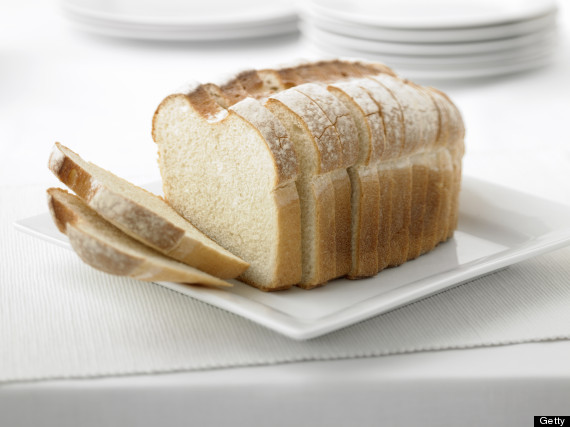
The rationale: "I've heard that some people feel less bloated when they give up gluten."
The mistake: Those who suffer from wheat-related bloat may have Celiac disease, an autoimmune disorder in which wheat damages the small intestine --but it affects less than one percent of Americans (the less-severe gluten insensitivity is also less common than most people realize). The gluten warning is specifically intended for those diagnosed with one of these conditions, but the Nutrition Twins see many people using it like a weight loss plan. These misguided dieters avoid all forms of gluten -- including satisfying, heart-healthy whole grains -- and, worse, swap food made from wheat flour for food made with processed rice, corn or soy flour. These commercial products can also be high in sugar and sodium, making them more unhealthy than the food they're intended to replace.
Try this: The 2010 Dietary Guidelines for Americans recommends that everyone switch from refined grains to whole grains. Even those diagnosed with a gluten sensitivity can still enjoy naturally gluten-free grains like amaranth, buckwheat, flax, millet, quinoa and teff.
4. They Eat Way Less And Exercise Way More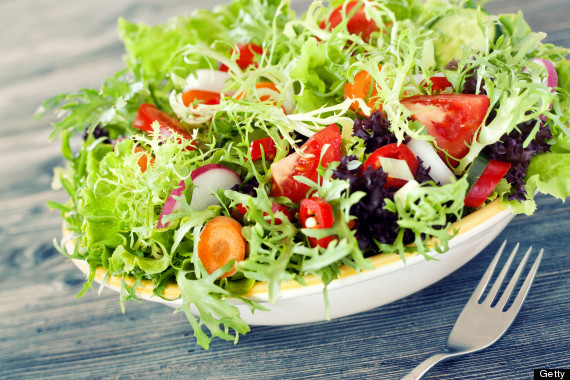
The rationale: "When I was in college, I dropped 10 pounds in two weeks by living on fat-free yogurt and running 5 miles every day."
The mistake: "When you drastically cut calories, you're telling your body to lower your metabolism and slow down weight loss," says Scritchfield. The problem is that your appetite may not easily adjust to your new restricted eating plan. So even if you drop pounds in the short term, you risk gaining them back -- plus extra -- as soon as you give in to satisfying your cravings.
Try this: While 2,000 calories per day is the average target for most Americans, this calculator or this tool can help you find the bull's-eye for your age, weight and activity level.
5. They Think It's Crazy To Eat Nuts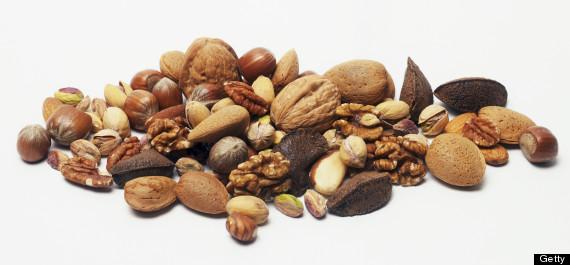
The rationale: "Nuts are basically little fat pills."
The mistake: "I have a lot of clients who are still afraid to eat nuts," says nutritionist Keri Glassman -- despite all the news about their high ratio of "good fats." Glassman reminds nut-o-phobes that fat is not only an essential nutrient, but it can also help them lose weight by filling them up and helping to satisfy cravings. One study found that participants who regularly snacked on almonds ate less for the rest of the day.
Try this: Choose almonds over less-nutrient-dense pretzels or fatty potato chips. Just be mindful of portion size: Glassman recommends a palmful of peanuts, almonds or cashews or two tablespoons of the spreadable stuff. If you're worried about overdoing it, stick with pistachios in the shell, because research has shown that shells serve as cues that signal us to stop snacking.
